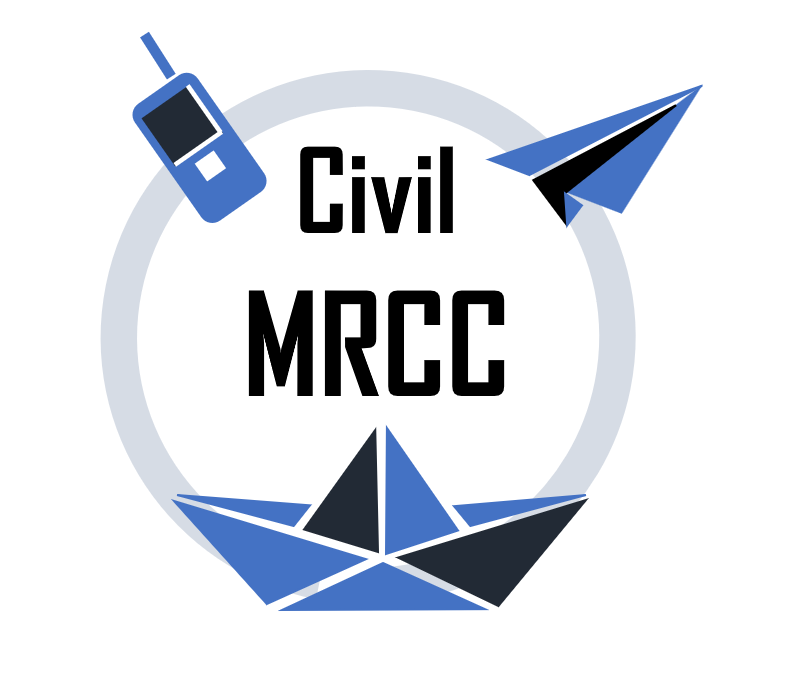Fighting Fortress Europe has never been easy, but the civil fleet is operating in an increasingly smaller space in the Central Mediterranean. We witness a highly militarized and mobile so-called Libyan coast guard backed by the EU and other Libyan militias in the Central Mediterranean.
For years, we have seen criminalization attacks on the civil actors. One of the latest results of this being the amendments to the Piantedosi Decree, following the ‘reasoning’ of externalisation of borders to control NGO behaviour and movements in international space.
Now, under Decreto Flussi, published on the 11th October 2024 and finally voted by both chambers on the 4th December 2024, the Italian government extends this to aircrafts, and thus to Sea-Watch’s Airborne operations. The decree contains paragraphs solely dedicated to adapting the Piantedosi Decree to aircraft taking off and/or landing in Italy which are involved in aerial monitoring operations. With the new Decree-Law Nr. 145, the Meloni government now aims to restrict the freedom of overflight, and ultimately, Airborne operations. This new attempt exactly follows the scheme of the Piantedosi-Decree for NGO ships: Abide by a set of conditions, or the aircraft will be detained.

Crew member of the Seabird 2 uses binoculars to search for boats in distress in the central Mediterranean. Credit: David Pichler / Sea-Watch.
The conditions specified are as follows:
Firstly, an aircraft must inform about distress cases “immediately and with priority” to the rescue coordination centers (RCCs) responsible for the area in which there is a boat in distress, together with the RCCs of the adjacent Search and Rescue Regions and the relevant aviation authority. This rule is not contradicting international law but only enlarging the list of authorities to be informed.
Second, pilots are required to follow operational instructions from RCCs. While competent authorities have to coordinate rescue operations according to the SAR legal framework, such treaties also establish clear duties for any (also private) actor which happens to witness a person in distress at sea. The clearest example would be, being on scene of a distress case and having the duty to support by remaining on scene to relay updated communication to support surface assets but receiving an order from a so-called Libyan Coastguard patrol vessel to simply leave the area. Thus, the documentation of violations of the law, as it is the case in case of shipwrecks, or illegal interceptions to Libya, would go unnoticed and the risk for violence and death for the people on board of a distress case increase. Here, the starkest contrast between international law and the Flussi decree is apparent.
In terms of sanctions, the decree establishes the possibility for ENAC (the Italian Civil Aviation Authority) to issue a fine between 2,000 and 10,000 Euros to the pilot. Furthermore, as an associated sanction they have the chance to detain the involved aircraft for a minimum of 10 days and a maximum of 20 days. In cases of repeated violations, the detention would increase from a minimum of 30 days to a maximum of 60 days. After this, the asset would be confiscated.
These foreseen penalties follow the sanctions which have been applied to NGO ships. Although so far despite numerous detentions conditions for repetition have only occurred twice for the vessels of the civil fleet (for Sea-Eye and MSF’s Geo Barents), with Decreto Flussi changes are now being introduced that appear to lead to a substantial tightening of the sanctions that will be adopted. Whereas previously, only the captain was considered responsible for any potential transgression, now the shipowner/operator will also be held accountable. So, now we also see that the Flussi Decree has been further adapted to tighten the grip on the ships as well as the Airborne operations of the civil fleet.

The goal of the Decreto Flussi is clear: to make the civil fleet inoperative and to make human rights violations invisible. Ultimately, this will only lead to more deaths at sea. Once again we see necropolitics laid bare in a regime that produces violence and death. At the very least, maybe we can see this decree-law targeting Airborne operations as some sort of win: they are desperately trying to get rid of us.
But as long as people fight this regime with their very flesh, we will stand with them.
Picture: Seabird 2 in the central Mediterranean. Credit: Stefano Belacchi / Sea-Watch
Sea Watch Airborne



